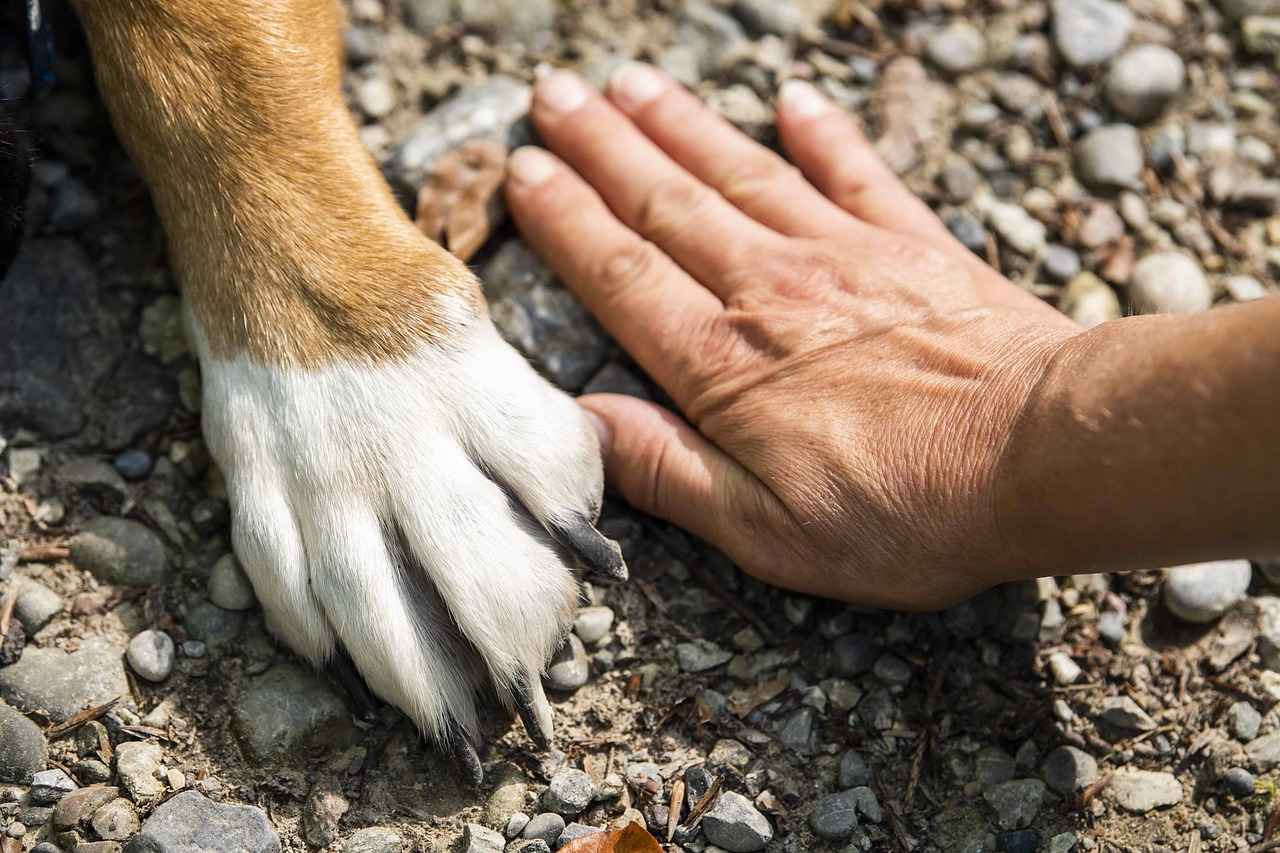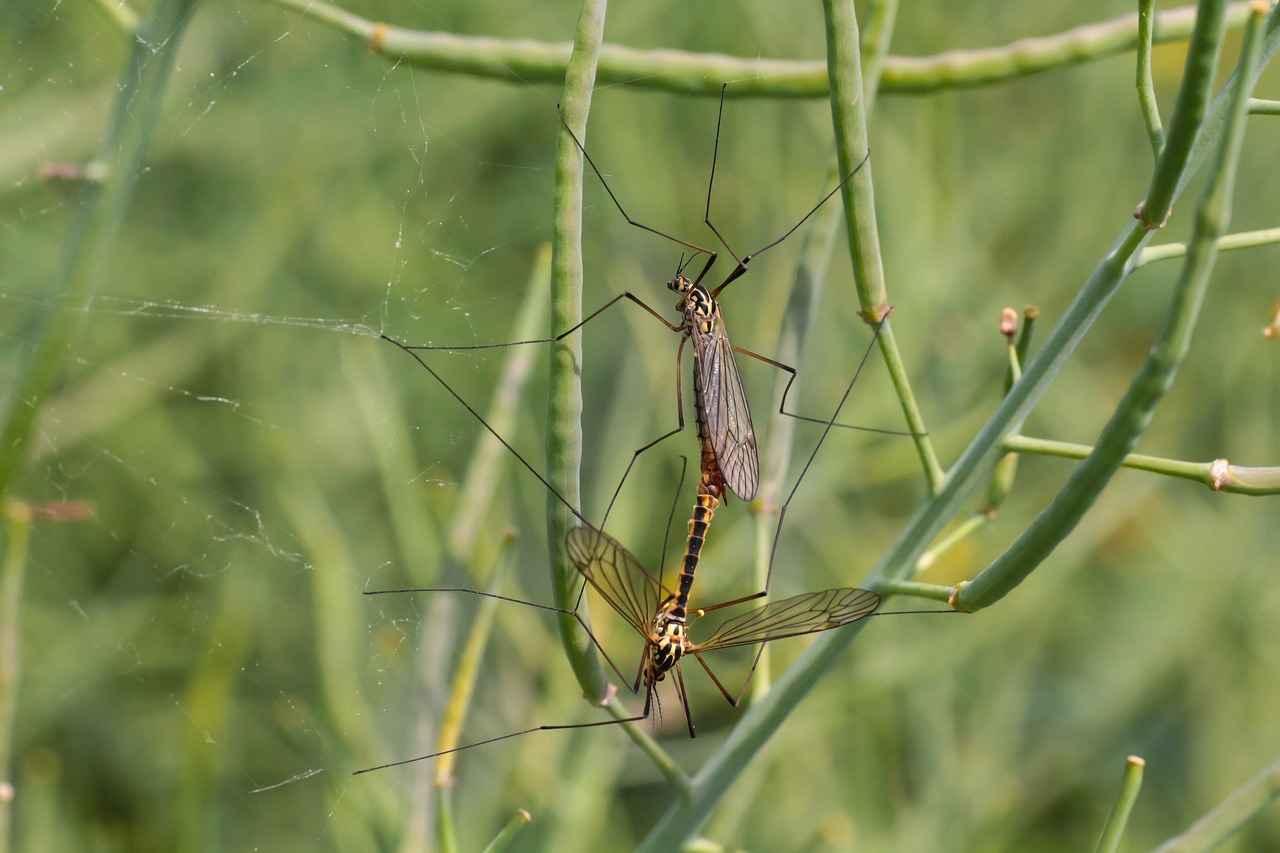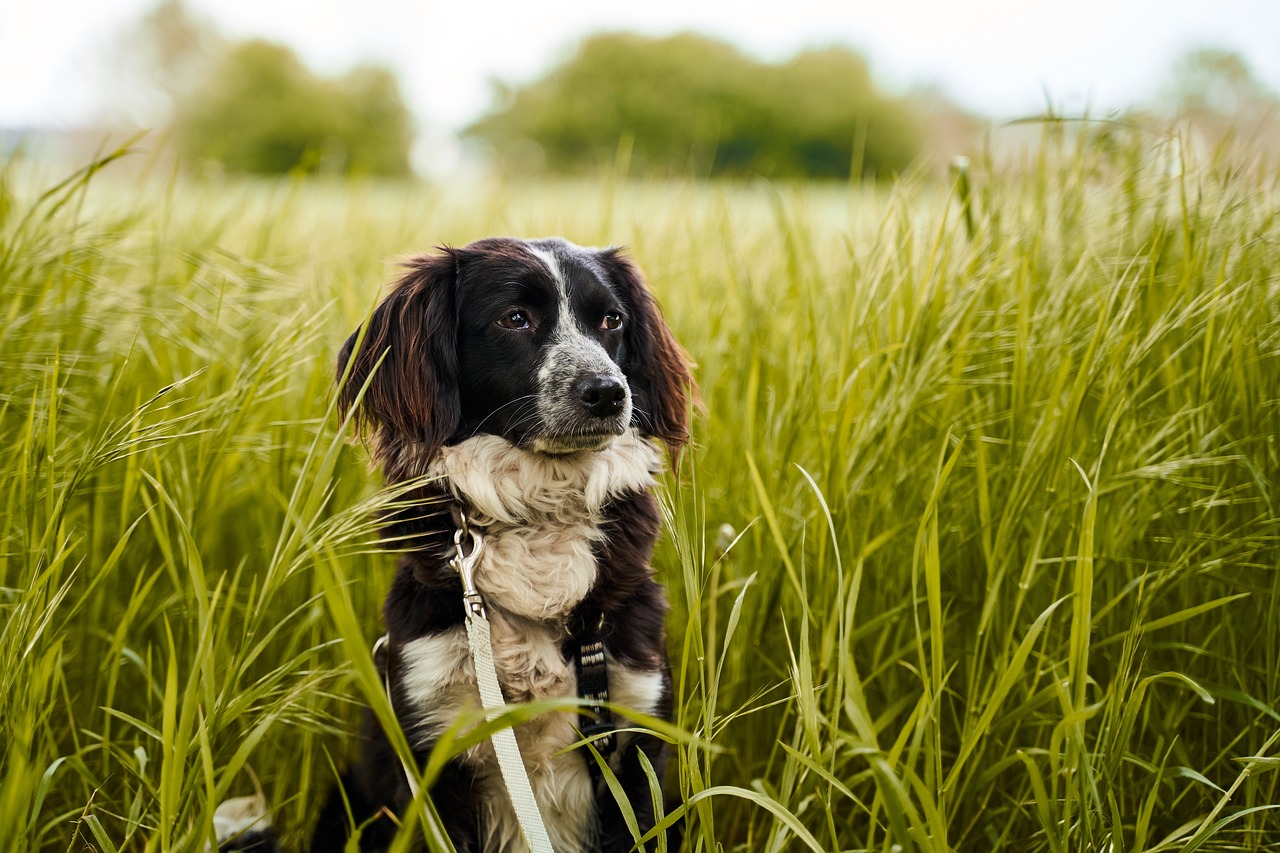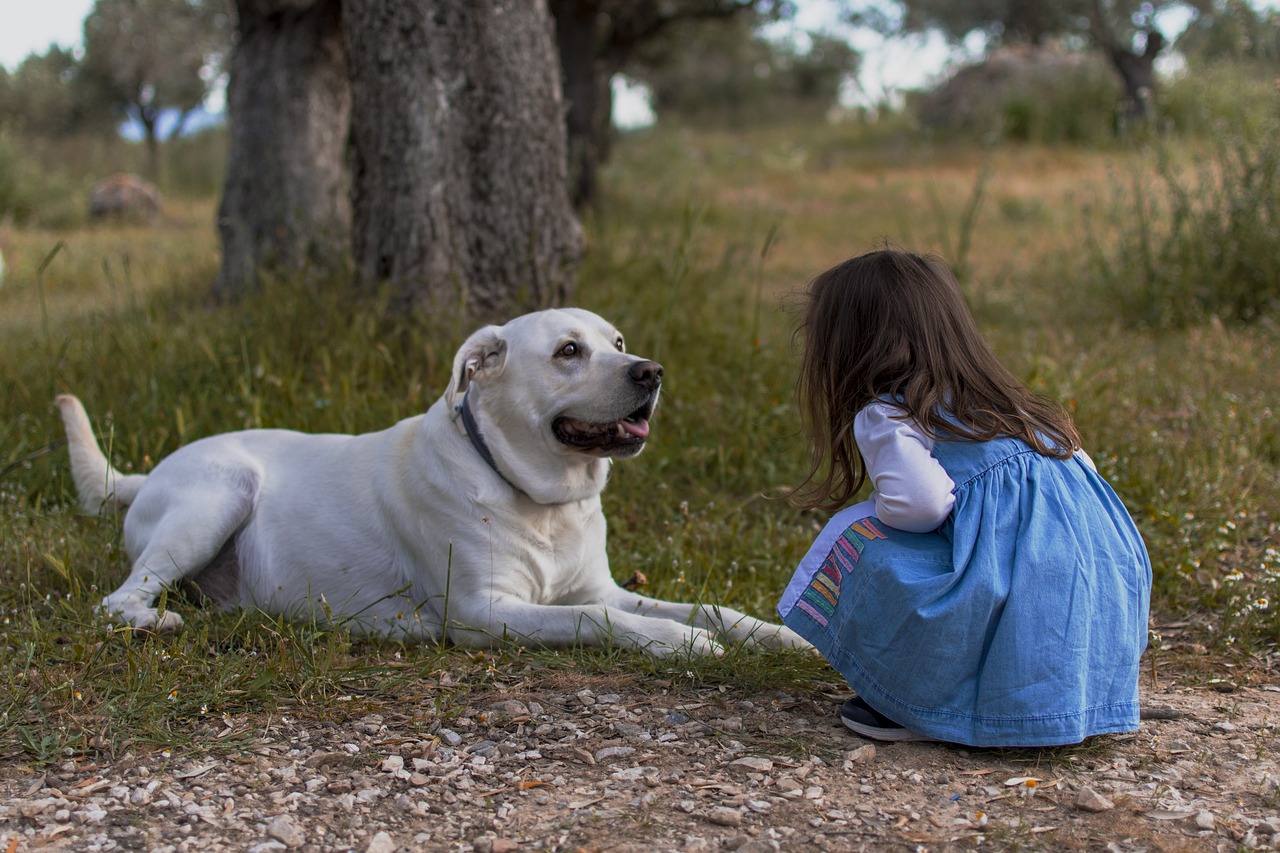This article examines the risks associated with mosquito bites for dogs, effective prevention strategies, and how to care for your pet if they are bitten, ensuring their health and safety.
Understanding Mosquito Bites on Dogs
Mosquito bites can affect dogs similarly to how they affect humans. Understanding how these bites occur and their potential impact on your pet is crucial for effective prevention. Dogs are susceptible to mosquito bites, which can lead to discomfort and health issues.
Signs Your Dog Has Been Bitten by a Mosquito
Recognizing the signs of mosquito bites on your dog can help you react promptly. Look for:
- Swelling around the bite area
- Redness and irritation
- Excessive scratching or licking
Common Symptoms of Mosquito Bites
Common symptoms include localized swelling, itching, and irritation. Observing these signs can guide you in determining whether your dog requires medical attention.
Behavioral Changes in Affected Dogs
If your dog is bitten, you may notice changes in behavior, such as increased restlessness or irritability. These changes can be signs of discomfort or allergic reactions.
When to Seek Veterinary Care
If your dog shows severe reactions or signs of infection, it’s essential to seek veterinary care. Prompt attention can prevent complications related to mosquito bites.
Allergic Reactions to Mosquito Bites
Some dogs may experience allergic reactions to mosquito bites. Understanding these reactions can help you manage your dog’s health effectively.
Preventing Mosquito Bites on Dogs
Preventive measures are key to protecting your dog from mosquito bites. Implementing simple strategies can significantly reduce their risk of exposure.
Using Mosquito Repellents for Dogs
There are various dog-safe mosquito repellents available. Choosing the right product can provide effective protection while ensuring your pet’s safety.
Creating a Mosquito-Free Environment
Maintaining a mosquito-free environment is crucial. Simple changes in your yard can help keep mosquitoes at bay and protect your dog from bites.
What to Do if Your Dog Gets Bitten
If your dog does get bitten, knowing how to respond is vital. Proper care can alleviate discomfort and prevent further issues.
First Aid for Mosquito Bites
Administering first aid can help soothe your dog’s discomfort. Cleaning the bite area and applying a cold compress are effective initial steps.
Monitoring for Complications
After a mosquito bite, monitoring your dog for complications is essential. Watch for signs of infection or allergic reactions that may require veterinary intervention.
Long-term Effects of Mosquito Bites on Dogs
Understanding the potential long-term effects of mosquito bites can help you make informed decisions about your dog’s health and well-being.
Risk of Disease Transmission
Mosquitoes can transmit diseases that affect dogs, such as heartworm. Being aware of these risks can guide you in preventive care.
Regular Veterinary Check-ups
Regular veterinary check-ups are essential for early detection of any health issues related to mosquito bites. Consistent care helps ensure your dog remains healthy and protected.
Conclusion: Keeping Your Dog Safe from Mosquitoes
In conclusion, understanding the risks and prevention strategies for mosquito bites can help keep your dog safe. By taking proactive measures, you can ensure your pet remains healthy and comfortable.

Understanding Mosquito Bites on Dogs
Mosquito bites are not just a nuisance for humans; they can also pose serious risks to our furry friends. Dogs can experience discomfort and health issues from mosquito bites, similar to humans. It is essential for pet owners to understand how these bites occur and the potential impact they can have on their pets’ health.
Mosquitoes are attracted to dogs primarily due to their body heat and the carbon dioxide they exhale. When a mosquito bites a dog, it injects saliva that can cause irritation and allergic reactions. Recognizing the signs of these bites is crucial for effective treatment and prevention.
Signs Your Dog Has Been Bitten by a Mosquito
- Swelling at the bite site
- Redness surrounding the area
- Excessive scratching or licking of the affected area
Common symptoms include localized swelling, itching, and irritation. Observing these signs can guide you in determining whether your dog requires medical attention. If your dog shows signs of distress, it is essential to consult with a veterinarian.
Behavioral Changes in Affected Dogs
When bitten, dogs may exhibit changes in behavior, such as increased restlessness or irritability. These behavioral shifts can indicate discomfort or an allergic reaction to the bite.
When to Seek Veterinary Care
If your dog shows severe reactions, such as difficulty breathing or signs of infection, it’s essential to seek veterinary care immediately. Prompt attention can prevent complications related to mosquito bites.
Preventing Mosquito Bites on Dogs
Preventive measures are key to protecting your dog from mosquito bites. Implementing simple strategies can significantly reduce their risk of exposure. Consider using dog-safe mosquito repellents and creating a mosquito-free environment in your yard.
Conclusion
Understanding the risks associated with mosquito bites and implementing preventive measures can help keep your dog safe and healthy. By being vigilant and proactive, you can ensure your pet remains comfortable and protected from these pesky insects.

Signs Your Dog Has Been Bitten by a Mosquito
Recognizing the signs of mosquito bites on your dog is essential for ensuring their comfort and health. Mosquito bites can lead to irritation and, in some cases, serious health issues. Being vigilant and aware of the symptoms can help you respond promptly and effectively.
- Swelling: One of the most common signs of a mosquito bite is localized swelling at the bite site. This can appear as a small bump or a more pronounced area of inflammation.
- Redness: Look for any redness around the affected area. This can indicate an allergic reaction or irritation caused by the bite.
- Excessive Scratching: If your dog is scratching more than usual, it may be a sign that they are feeling itchy and uncomfortable due to a mosquito bite.
- Behavioral Changes: Pay attention to any changes in your dog’s behavior, such as restlessness or irritability. These can be signs that they are in discomfort.
- Hair Loss: In some cases, excessive scratching can lead to hair loss around the bite area, which may expose the skin to further irritation or infection.
It’s important to note that while most mosquito bites will cause mild symptoms, some dogs may have more severe reactions, particularly if they are allergic. If your dog exhibits signs of severe swelling, difficulty breathing, or any other concerning symptoms, it is crucial to seek veterinary care immediately.
By being observant and proactive, you can help alleviate your dog’s discomfort and prevent potential complications from mosquito bites. Regular check-ups with your veterinarian can also provide additional guidance on keeping your pet safe from pests.
Common Symptoms of Mosquito Bites
When it comes to mosquito bites on dogs, being vigilant about the signs and symptoms is crucial for your pet’s health. Understanding these indicators can help you provide the necessary care and decide when to seek veterinary assistance.
Common symptoms of mosquito bites in dogs include:
- Localized Swelling: You may notice a small, raised area on your dog’s skin where the bite occurred. This swelling can vary in size and may be accompanied by redness.
- Itching: Dogs often react to mosquito bites with intense itching. If your dog is scratching or licking a specific area excessively, it could indicate a mosquito bite.
- Irritation: The bite area might appear irritated or inflamed. This can lead to additional discomfort for your pet.
In addition to these physical symptoms, you may also observe behavioral changes in your dog. Increased restlessness or signs of irritability can indicate that your dog is feeling uncomfortable due to the bite. These behavioral changes are important to monitor as they can signal that your dog is experiencing more than just mild irritation.
If you notice these symptoms, it’s essential to assess the situation carefully. While many mosquito bites are harmless and can be treated at home, some dogs may experience severe reactions, which could necessitate veterinary care. Prompt observation and action can help you determine whether your dog needs professional attention.
Overall, being aware of the symptoms associated with mosquito bites can significantly impact your dog’s well-being. By keeping an eye on your pet and recognizing the signs of discomfort, you can provide effective care and ensure their health remains a priority.
Behavioral Changes in Affected Dogs
When your dog experiences a mosquito bite, it can lead to various behavioral changes that may indicate discomfort or distress. It is important for pet owners to be vigilant and observant of their dog’s behavior following a bite.
- Increased Restlessness: One of the first signs you might notice is that your dog becomes more restless than usual. They may pace around the house or seem unable to settle down.
- Irritability: Affected dogs may display signs of irritability, such as snapping or growling when approached. This behavior can be a direct response to pain or discomfort caused by the bite.
- Excessive Scratching or Licking: Dogs may begin to scratch or lick the bite area excessively. This behavior can worsen the irritation and potentially lead to infections.
- Changes in Appetite: Some dogs may lose their appetite or show disinterest in food. This can be a reaction to the discomfort they are feeling.
- Vocalization: If your dog is in pain, they may vocalize more than usual, whining or barking to express their discomfort.
These behavioral changes can be indicative of a greater issue, such as an allergic reaction or an infection. It is crucial to monitor your dog closely and consult with a veterinarian if you notice any of these signs persisting or worsening.
In summary, being aware of your dog’s behavior after a mosquito bite is essential for timely intervention. Prompt action can help alleviate their discomfort and prevent further complications.
When to Seek Veterinary Care
When it comes to your dog’s health, being vigilant is key. Understanding when to seek veterinary care is crucial, especially in the case of mosquito bites. While many bites may seem harmless, some can lead to serious complications if left untreated.
If you notice that your dog is experiencing severe reactions such as excessive swelling, difficulty breathing, or persistent vomiting, it is essential to seek veterinary assistance immediately. These symptoms may indicate an allergic reaction or an infection that requires prompt medical attention.
Additionally, if you observe any signs of infection like pus, increased redness, or warmth around the bite site, do not hesitate to consult your veterinarian. Infections can escalate quickly and may lead to more serious health issues if not addressed promptly.
Another factor to consider is your dog’s overall health condition. Senior dogs or those with pre-existing health issues may be more vulnerable to complications from mosquito bites. If your dog falls into this category and shows any unusual symptoms, it is wise to reach out to your vet without delay.
Furthermore, if your dog exhibits behavioral changes such as excessive whining, reluctance to move, or signs of pain, these could be indicators of discomfort that warrant a professional evaluation. Monitoring your dog’s behavior after a mosquito bite is an important step in ensuring their well-being.
In summary, while many mosquito bites are minor, prompt attention to severe reactions or signs of infection is essential for your dog’s health. By being proactive and observant, you can help prevent complications and ensure your furry friend remains safe and healthy.
Allergic Reactions to Mosquito Bites
Dogs, like humans, can experience allergic reactions to mosquito bites. These reactions can vary significantly among individual dogs, making it essential for pet owners to be aware of the signs and symptoms. Understanding how to identify and manage these allergic responses is crucial for maintaining your dog’s health and comfort.
What Causes Allergic Reactions?
When a mosquito bites, it injects saliva into the skin, which can trigger an immune response in some dogs. This response may be due to a heightened sensitivity to the proteins present in the mosquito’s saliva. As a result, the dog’s body may react by producing histamines, leading to symptoms such as:
- Localized swelling around the bite site
- Intense itching that may cause your dog to scratch excessively
- Redness and inflammation in the affected area
- Hair loss due to scratching or biting at the site
Behavioral Indicators of Allergic Reactions
In addition to physical symptoms, you may notice behavioral changes in your dog. These can include:
- Restlessness or inability to settle down
- Increased irritability or mood changes
- Loss of appetite due to discomfort
When to Seek Veterinary Help
If your dog exhibits severe symptoms, such as difficulty breathing, swelling of the face or throat, or persistent vomiting, it is vital to seek veterinary care immediately. These could be signs of a more serious allergic reaction known as anaphylaxis, which requires urgent treatment.
Managing Allergic Reactions
For mild reactions, you can manage your dog’s discomfort at home. Cleaning the bite area and applying a cold compress can help reduce swelling and itching. Additionally, your veterinarian may recommend antihistamines or topical treatments to alleviate symptoms.
In conclusion, being aware of your dog’s potential allergic reactions to mosquito bites is essential for their overall health. By recognizing the signs and knowing how to respond, you can help ensure your furry friend remains comfortable and safe.

Preventing Mosquito Bites on Dogs
Protecting your dog from mosquito bites is essential for their overall health and well-being. Mosquitoes not only cause discomfort but can also transmit serious diseases. Therefore, implementing effective preventive measures is crucial. Here are some strategies to help keep your furry friend safe from these pesky insects:
- Use Mosquito Repellents: Opt for dog-safe mosquito repellents that are specifically formulated for pets. Always check the ingredients to ensure they are safe and effective.
- Limit Outdoor Exposure: During peak mosquito activity, typically at dawn and dusk, try to keep your dog indoors. This can significantly reduce their chances of being bitten.
- Maintain Your Yard: Regularly mow your lawn and trim bushes to eliminate potential mosquito breeding grounds. Standing water is a major attractor, so ensure that your yard is free from it.
- Install Screens: Use screens on windows and doors to prevent mosquitoes from entering your home. This simple measure can create a safer environment for your dog.
- Consider Natural Remedies: Some natural ingredients, like citronella and eucalyptus, can deter mosquitoes. Consult with your veterinarian about safe options for your dog.
By implementing these simple yet effective strategies, you can significantly reduce your dog’s risk of mosquito bites. Regularly monitoring your pet for any signs of discomfort or bites is also essential. If you notice any unusual behavior, such as excessive scratching or swelling, consult your veterinarian promptly.
In conclusion, taking proactive steps to prevent mosquito bites not only enhances your dog’s comfort but also protects them from potential health risks. Your vigilance and care can ensure that your pet remains happy and healthy, free from the nuisance of mosquitoes.
Using Mosquito Repellents for Dogs
When it comes to protecting our furry friends from pesky mosquito bites, choosing the right repellent is essential. There are various dog-safe mosquito repellents available on the market, each designed to keep your pet safe while effectively warding off these biting insects. Selecting the appropriate product can provide effective protection without compromising your pet’s health.
Before purchasing a mosquito repellent, it is vital to consider the following factors:
- Ingredients: Always check the ingredients list. Look for natural options like citronella, lemongrass, or geranium oil, which are generally safe for dogs.
- Formulation: Mosquito repellents come in various forms, including sprays, wipes, and collars. Choose a formulation that suits your dog’s lifestyle and comfort.
- Veterinary Recommendations: Consult your veterinarian for recommendations tailored to your dog’s specific needs, especially if they have pre-existing health conditions.
Additionally, it’s essential to apply the repellent correctly. Avoid applying it near your dog’s eyes, nose, and mouth, and ensure that the product is evenly distributed across their fur. Regular reapplication is crucial, especially after your dog has been swimming or playing outdoors.
In addition to using repellents, consider creating a mosquito-free environment around your home. This can be achieved by:
- Removing standing water, where mosquitoes breed.
- Using screens on windows and doors to keep mosquitoes out.
- Planting mosquito-repelling plants in your yard, such as marigolds or lavender.
By combining effective repellents with environmental adjustments, you can significantly reduce your dog’s risk of mosquito bites. Ensuring your pet’s safety and comfort is paramount, and with the right approach, you can enjoy outdoor activities together without worry.
Creating a Mosquito-Free Environment
Maintaining a mosquito-free environment is essential for the health and well-being of both humans and pets, particularly dogs. Mosquitoes are not only a nuisance but can also pose serious health risks through their bites. Here are some effective strategies to reduce mosquito populations in your yard:
- Eliminate Standing Water: Mosquitoes breed in stagnant water. Regularly check your yard for any standing water in bird baths, flower pots, or pet bowls, and change the water frequently.
- Maintain Your Lawn: Keep your grass trimmed and your landscaping well-maintained. Overgrown shrubs and tall grass provide perfect hiding spots for mosquitoes.
- Use Natural Repellents: Planting mosquito-repelling plants such as lavender, marigold, and citronella can deter these pests naturally. Additionally, using essential oils like eucalyptus and lemon can be effective.
- Install Screens: Ensure that windows and doors are fitted with screens to keep mosquitoes out of your home. Repair any holes or tears to maintain their effectiveness.
- Use Mosquito Traps: Consider investing in mosquito traps that attract and capture these insects, reducing their numbers in your yard.
By implementing these simple yet effective strategies, you can significantly reduce the presence of mosquitoes in your outdoor space. This not only protects your dog from bites but also enhances your overall outdoor experience. Remember, a proactive approach to mosquito control is key to ensuring a safe and comfortable environment for your beloved pet.

What to Do if Your Dog Gets Bitten
When it comes to our beloved pets, ensuring their well-being is a top priority. If your dog gets bitten by a mosquito, knowing how to respond effectively is vital. Proper care can alleviate discomfort and prevent further issues, ensuring your furry friend remains healthy.
First and foremost, stay calm. Your dog can sense your anxiety, which may increase their distress. Begin by examining the bite area for any signs of swelling or redness. If the bite appears minor, you can proceed with basic first aid.
- Clean the Bite Area: Gently wash the area with mild soap and water to remove any dirt and bacteria.
- Apply a Cold Compress: Use a clean cloth soaked in cold water or an ice pack wrapped in a towel to reduce swelling and soothe irritation.
- Monitor for Symptoms: Keep an eye on your dog for any signs of excessive scratching, licking, or behavioral changes that indicate discomfort.
If your dog shows severe reactions, such as difficulty breathing, excessive swelling, or signs of infection like pus or increased redness, it’s essential to seek veterinary care immediately. Prompt attention can prevent complications related to mosquito bites.
After a mosquito bite, monitor your dog closely for any unusual symptoms. Look for signs of allergic reactions, such as hives or swelling beyond the bite area. If you notice any concerning changes, don’t hesitate to consult your veterinarian.
In conclusion, being prepared and knowledgeable about how to care for your dog in the event of a mosquito bite can make a significant difference. By taking the right steps, you can help ensure your pet’s comfort and health.
First Aid for Mosquito Bites
When your dog suffers from a mosquito bite, it’s essential to act quickly to alleviate their discomfort and prevent any potential complications. Administering first aid can significantly improve your pet’s well-being. Here are some effective steps to take:
- Clean the Bite Area: Begin by gently cleaning the affected area with mild soap and water. This helps to remove any irritants and reduces the risk of infection.
- Apply a Cold Compress: Using a cold compress can help soothe your dog’s skin and reduce swelling. Wrap ice cubes in a cloth or use a cold pack, applying it for 10-15 minutes at a time.
- Monitor for Signs of Allergic Reaction: Keep an eye on your dog for any signs of severe allergic reaction, such as difficulty breathing, excessive swelling, or lethargy. If any of these symptoms occur, contact your veterinarian immediately.
- Use Anti-Itch Cream: If your dog is experiencing intense itching, consider applying a vet-approved anti-itch cream. This can provide relief and prevent your dog from scratching the area excessively.
- Prevent Scratching: To prevent your dog from scratching the bite area, you may need to use an Elizabethan collar (cone) until the area heals. This will help prevent further irritation and potential infection.
After administering first aid, it’s important to monitor your dog closely for any changes. If the bite area shows signs of infection, such as increased redness, warmth, or discharge, seek veterinary care as soon as possible. By taking these proactive measures, you can help ensure your dog remains comfortable and healthy after a mosquito bite.
Monitoring for Complications
After your dog experiences a mosquito bite, it is crucial to be vigilant and monitor for any complications. While many bites may cause only mild irritation, some dogs can develop more serious reactions. Here are key points to consider:
- Signs of Infection: Keep an eye out for increased redness, swelling, or discharge at the bite site. These symptoms may indicate an infection that requires veterinary attention.
- Allergic Reactions: Some dogs may have allergic reactions to mosquito bites. Symptoms such as excessive itching, hives, or swelling around the face and eyes should prompt an immediate visit to the veterinarian.
- Behavioral Changes: If your dog seems more restless, irritable, or lethargic than usual, it might be a sign of discomfort or an adverse reaction to the bite.
It is essential to act quickly if you notice any of these signs. Veterinary intervention may be necessary to prevent complications and ensure your dog’s health. In some cases, prompt treatment can make a significant difference in recovery time and overall well-being.
Additionally, if your dog has a history of severe allergic reactions, it may be wise to consult your veterinarian proactively about potential treatments or preventive measures. Keeping a close watch on your dog after a mosquito bite can help you catch any issues early, allowing for the best possible outcome.
In conclusion, while most mosquito bites in dogs are harmless, being proactive and vigilant is key. Regular monitoring and understanding the signs of complications can help keep your furry friend safe and healthy.

Long-term Effects of Mosquito Bites on Dogs
Understanding the potential long-term effects of mosquito bites on dogs is crucial for any pet owner. While many may consider mosquito bites to be a minor nuisance, they can lead to serious health implications if left unaddressed. This article delves into the various consequences that mosquito bites can have on your dog’s health and well-being, allowing you to make informed decisions regarding their care.
Risk of Disease Transmission
One of the most significant long-term effects of mosquito bites is the risk of disease transmission. Mosquitoes are known vectors for various diseases that can severely affect dogs, including:
- Heartworm Disease: This life-threatening condition is caused by parasitic worms transmitted through mosquito bites. Heartworms can lead to severe lung disease, heart failure, and other organ damage.
- West Nile Virus: Though less common in dogs compared to humans, it can still pose health risks.
- Eastern Equine Encephalitis: This viral infection can cause neurological issues in dogs.
Allergic Reactions
Some dogs may develop allergic reactions to mosquito bites, leading to chronic itching, skin infections, or even more severe allergic responses. These reactions can result in long-term discomfort and require ongoing management, including medications or specialized diets.
Behavioral Changes
Dogs that suffer from frequent mosquito bites may exhibit behavioral changes due to discomfort or pain. Increased irritability, restlessness, or changes in eating habits can indicate that your dog is struggling with the effects of mosquito bites. Monitoring these behaviors is essential for timely intervention.
Prevention and Care
To mitigate the long-term effects of mosquito bites, it is vital to implement preventive measures. Regular veterinary check-ups, the use of mosquito repellents designed for dogs, and maintaining a clean outdoor environment can significantly reduce the risk of bites and associated health issues.
In conclusion, being aware of the long-term effects of mosquito bites on dogs is essential for ensuring their health and well-being. By taking proactive steps to protect your pet, you can help prevent serious health complications and promote a happier, healthier life for your furry friend.
Risk of Disease Transmission
Mosquitoes are not just a nuisance; they are also vectors for various diseases that can significantly impact the health of our beloved pets, particularly dogs. One of the most concerning diseases transmitted by mosquitoes is heartworm. This parasitic infection can lead to severe health complications if not detected and treated promptly.
Understanding Heartworm Disease
Heartworm disease is caused by a parasite called Dirofilaria immitis, which is transmitted through mosquito bites. Once inside a dog, the larvae mature into adult worms that reside in the heart and lungs, causing serious cardiovascular issues. Symptoms can include coughing, lethargy, and weight loss. If left untreated, heartworm disease can be fatal.
Other Diseases Transmitted by Mosquitoes
In addition to heartworm, mosquitoes can transmit other diseases that may affect dogs, such as:
- West Nile Virus: Though rare in dogs, it can cause neurological issues.
- Eastern Equine Encephalitis: This can lead to serious brain inflammation.
- Canine Malaria: A less common but serious condition caused by protozoan parasites.
Preventive Measures
Being aware of these risks is crucial for dog owners. Here are some preventive measures you can take:
- Use mosquito repellents specifically designed for pets.
- Keep your yard free of standing water to reduce mosquito breeding grounds.
- Consider heartworm prevention medications as recommended by your veterinarian.
Conclusion
Understanding the risks associated with mosquito bites and the potential for disease transmission is essential for every dog owner. By taking proactive steps and consulting with your veterinarian, you can significantly reduce your dog’s risk of contracting serious illnesses. Keeping your furry friend safe and healthy is the ultimate goal.
Regular Veterinary Check-ups
are a crucial aspect of responsible pet ownership, especially when it comes to safeguarding your dog from the potential health issues that can arise from mosquito bites. These check-ups are not just routine; they serve as an essential line of defense in identifying and addressing any health concerns before they escalate.
Mosquito bites can lead to various complications, including allergic reactions and the transmission of serious diseases such as heartworm. By scheduling consistent veterinary visits, you enable your veterinarian to monitor your dog’s overall health and detect any early signs of these issues. During these appointments, your vet can perform comprehensive examinations, update vaccinations, and recommend preventive treatments tailored to your dog’s needs.
Furthermore, regular check-ups provide an opportunity for pet owners to discuss any behavioral changes or physical symptoms they may have observed at home. For instance, if your dog has been scratching excessively or showing signs of discomfort, your veterinarian can evaluate these symptoms in the context of potential mosquito bites or other underlying conditions.
In addition to physical examinations, these visits often include discussions about preventive care. Your veterinarian can advise on effective mosquito repellents and other strategies to minimize your dog’s exposure to mosquitoes, ensuring that your furry friend remains protected throughout the warmer months.
Ultimately, prioritizing regular veterinary check-ups is a proactive approach to your dog’s health. It not only helps in the early detection of issues related to mosquito bites but also reinforces your commitment to providing a healthy and happy life for your pet. Remember, a healthy dog is a happy dog, and regular veterinary care is key to achieving that goal.

Conclusion: Keeping Your Dog Safe from Mosquitoes
In summary, ensuring your dog’s safety from mosquito bites involves a comprehensive understanding of the associated risks and the implementation of effective prevention strategies. Mosquito bites can lead to discomfort and, in some cases, serious health issues for your pet. Therefore, it is crucial to be proactive in safeguarding their well-being.
Recognizing the Risks: Mosquitoes are not just a nuisance; they can transmit dangerous diseases such as heartworm, which can have severe consequences for your dog’s health. Understanding the potential dangers of mosquito bites is the first step in protecting your furry friend.
Prevention is Key: Implementing simple yet effective measures can significantly reduce your dog’s risk of being bitten. Using dog-safe mosquito repellents, creating a mosquito-free environment in your yard, and keeping your dog indoors during peak mosquito activity hours are all strategies that can help. Regularly trimming grass and removing standing water can also minimize mosquito breeding grounds.
Monitoring Your Dog: After taking preventive measures, it’s essential to monitor your dog for any signs of mosquito bites, such as swelling, redness, or excessive scratching. If you notice these symptoms, administering first aid can alleviate discomfort. Cleaning the bite area and applying a cold compress are initial steps to take.
Veterinary Care: If your dog shows signs of severe reactions or if you suspect an allergic response, seeking veterinary care is vital. Prompt attention can prevent complications and ensure your dog receives the necessary treatment.
By taking these proactive steps, you can help ensure your dog remains not only healthy but also comfortable throughout the mosquito season. Your vigilance and care play a significant role in protecting your beloved pet from the potential dangers posed by these pests.
Frequently Asked Questions
- Do mosquito bites hurt dogs?
Yes, mosquito bites can be uncomfortable for dogs, causing itching and swelling. Just like us, they can feel irritation from the bites, which might make them scratch or lick the area.
- How can I tell if my dog is allergic to mosquito bites?
If your dog shows excessive scratching, swelling, or redness around the bite area, it might be an allergic reaction. Keep an eye out for more severe symptoms like difficulty breathing or swelling of the face, and consult your vet if you notice these signs.
- What are the best mosquito repellents for dogs?
Look for dog-safe mosquito repellents that contain natural ingredients like citronella or lemongrass. Always check with your veterinarian before applying any product to ensure it’s safe for your furry friend.
- What should I do if my dog gets bitten by a mosquito?
First, clean the bite area with mild soap and water. Applying a cold compress can help reduce swelling. If you notice any signs of infection or severe allergic reactions, don’t hesitate to contact your vet.
- Can mosquito bites transmit diseases to dogs?
Yes, mosquitoes can transmit diseases like heartworm. It’s vital to keep your dog on preventive medication and have regular vet check-ups to ensure their health.












